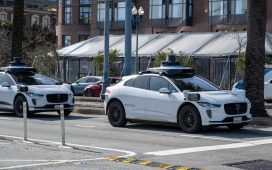As Maryland’s residents know too well, driving on Interstate 695 and Interstate 495 is no walk in the park. Maryland has some of the worst congestion in the country, and there’s a never-ending list of infrastructure “priorities” that has only grown over time. The Transportation Trust Fund faces a projected $3.3 billion shortfall from the state’s six-year transportation spending plan, leading to lengthy discussions between delegates, various committees and Gov. Wes Moore’s office on how best to proceed. While the usual suspects are calling for tax increases, Maryland drivers deserve a fairer, more cost-conscious transportation system. Policymakers need to turn off cruise control and steer the Trust Fund away from a fiscal cliff (“The toll truth: No more free (or deeply discounted) rides,” Sept. 18).
The refrain that “taxes need to be higher” is a familiar one for Marylanders. The state has a top individual income tax rate of 5.75% on top of the many local jurisdictions that also collect income tax. Maryland also has a 6% sales tax along with an 8.25% corporate tax that inevitably gets passed onto workers and consumers. Tolls are regularly hiked on Maryland’s roads and, according to a 2023 state audit, more than 80,000 drivers have been overcharged by the state’s system. While tolls and other taxes have resulted in widespread economic pain, gasoline taxes have had a particularly insidious impact. Maryland’s 47-cent per gallon tax (raised from 42.7 cents in July 2023) is supposed to finance road maintenance yet users of electric vehicles don’t have to pay it.
This tax policy blind spot is not only unfair but also creates significant equity and funding issues. According to a 2020 study in the academic journal Environmental and Energy Policy and the Economy, “electric vehicles have reduced gasoline tax revenues by $250 million annually. We show that the forgone tax revenue is highly concentrated in a handful of states and is highly regressive, as most electric vehicles are driven by high-income households, and we discuss how this motivates and informs optimal policy.” While the cited figures are national, Maryland’s relatively high share of EV ownership does not bode well for state roads. There are now approximately 70,000 EVs registered in the state, and this number is only expected to grow.
This clear link between EV ownership and transportation funding has caught the attention of some policymakers. In December, a commission tasked with studying Maryland’s transportation funding issues came out with the following recommendation: “The Maryland General Assembly should authorize the Motor Vehicle Administration (MVA) to collect an additional registration fee for electric and/or hybrid vehicles.” According to the commission, a $200 annual fee would be in line with what most states charge and approximate what ordinary drivers pay in gas taxes. The commission’s second recommendation, though, was far more problematic.
The report’s authors suggested that the legislature, “should require the Maryland Transportation Authority (MDTA) to adjust toll rates to maximize toll revenue in order to generate additional revenues to help support Maryland’s broader transportation system.” But, unlike the first recommendation, this policy has been repeatedly tried before with little success. Drivers of conventional, gas-powered vehicles are already paying more than enough to compensate for their wear and tear on the roads. Thanks to sky-high gas taxes, this subset of drivers pay the state of Maryland well over $1 billion each year for road repair. The Maryland Department of Transportation budget is expected to grow at a 1% clip through 2030. Maryland’s working-class drivers are expected to foot the entirety of this bill to fund the luxury vehicles driven by their wealthier neighbors.
Until this deeply unfair situation gets sorted out, Maryland’s transportation policy will continue to veer off-course. It’s time for taxpayers to take the wheel and steer the state in a better direction.
— David Williams, Washington, D.C.
The writer is president of the Taxpayers Protection Alliance.
Add your voice: Respond to this piece or other Sun content by submitting your own letter.










